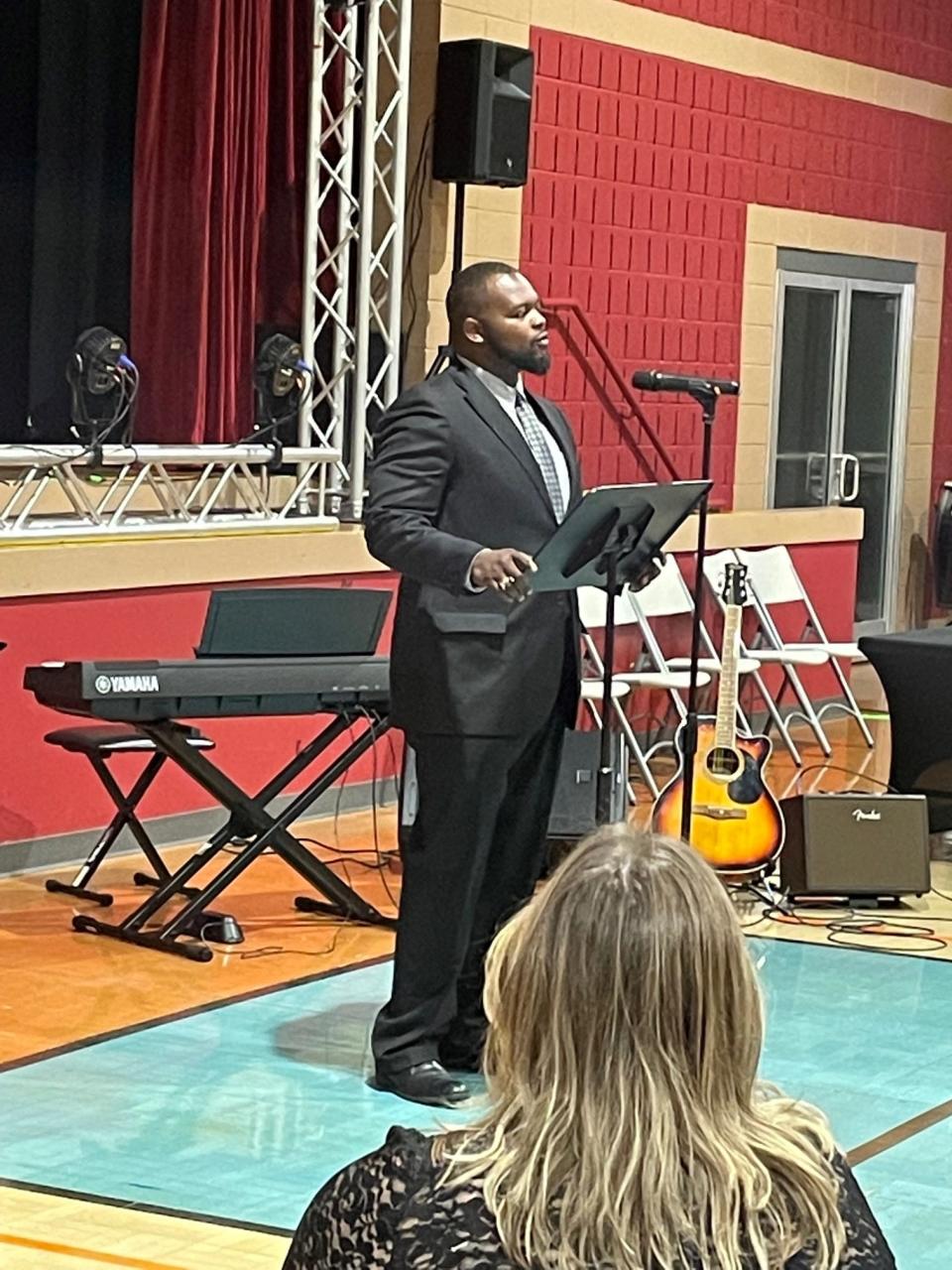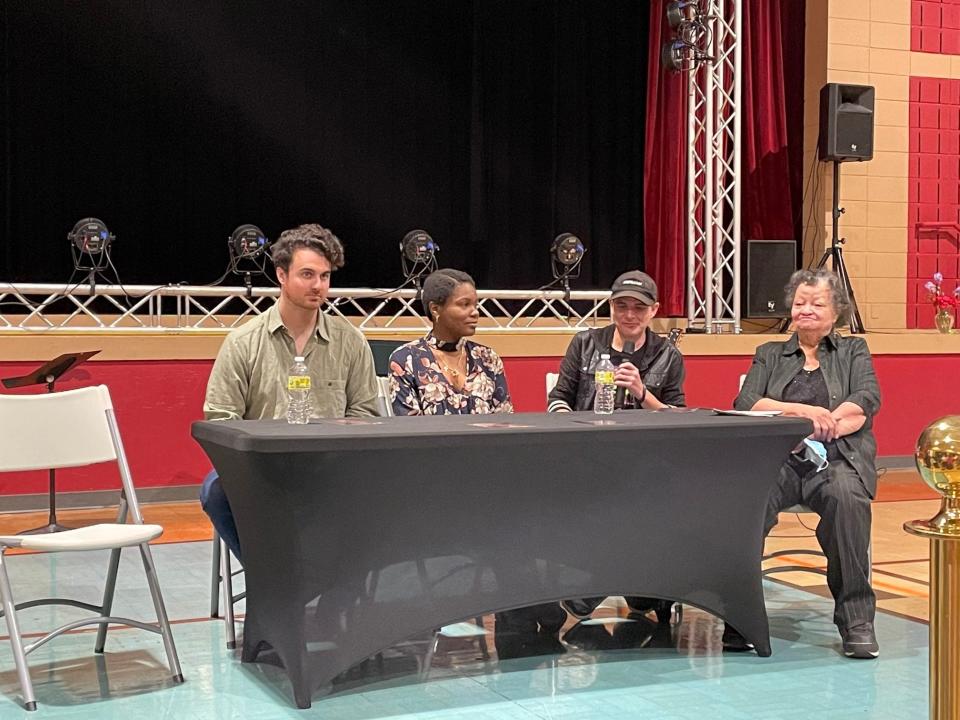Community Remembrance Project explores effect of 'judicial complicity' in Greenville
They were sons, brothers, husbands, fathers, and all were killed, lynched, in Greenville.
Remembering them is key not just to understanding the past, but to understanding the present and the future. That is the message of the Community Remembrance Project of Greenville County why the organization led a program to honor and to remember on Saturday.
The program, titled “Judicial Complicity in Greenville County,” served as a conduit for acknowledgement and for conversation about racially motivated lynchings that happened in Greenville. Organizers expressed hope that bringing the past to light, no matter how uncomfortable, may serve to create meaningful change in the future.
“The violence and the terror of lynching created a legacy that has not been adequately addressed in our community,” said Feliccia Smith, co-chair of the Community Remembrance Project. “And that legacy continues to sustain racial injustice and bias, and so the time is now; the time is now that we remember.”
Saturday’s program focused on three men.

Ira Johnson was hung from a tree in 1895 after a fight with a white man.
Robert Williams was kidnapped and murdered in 1881 after the husband and father of two children was accused of assaulting a white woman.
Willie Earle was killed by a mob of white men after being accused of killing a white cab driver.
None of these men ever had a chance to go to trial and none of their killers were ever brought to justice. The men are some of the 189 people identified by the Equal Justice Initiative as victims of lynching in South Carolina.
LYNCHING MEMORIALIZED: Greenville lynching to be memorialized in virtual community event
Saturday’s Remembrance Project event told the stories of the men and explored the lasting legacy and the impact of their deaths through monologues presented by Glow Lyric Theatre, through a screening of the documentary film, “Remembering Willie Earle,” as well as a panel discussion with that film’s producers and a panel discussion with the Rev. Emanuel Flemming, attorney Osa Benson and Greenville Black history expert and advocate Ruth Ann Butler.
CIVIL RIGHTS MOVEMENT: Ruth Ann Butler recalls her involvement in the civil rights movement in Greenville
The Community Remembrance Project works in partnership with the Equal Justice Initiative, a national organization that has worked tirelessly to shed light and to provide research and to give attention to the victims of lynching and to the lasting impact of racial terror in the United States.
Among the efforts to shed light on the issue EJI has created a museum and a memorial in Montgomery, Alabama and has set about to collect soil samples from each site where a person was lynched.
The Community Remembrance Project is in the process of erecting markers at lynching sites in honor of the victims.
That is but a piece of the work, organizers said Saturday. The onus is on each person, no matter race or ethnicity, to examine themselves and to create change within their own mindsets and actions, they said.
“You know how we say those people ought to do something? We are those people,” Flemming said. “And this day and age, we have to make sure that we are allowing for the truth to be told.”
That’s why the work of the Community Remembrance Project is so important, organizers said.
“How can they make a difference if we’re not telling them about what’s happened and what is happening?” Flemming said. “That’s how reconciliation actually takes place. Once we own up to whatever it is. It is what it is. And what can we do collectively and individually to make a difference in this world that we say we love.”

Furthering the conversation Saturday was the screening of a film, “Remembering Willie Earle,” by Frank Carroll, Thomas Espy, Stevie Jefferis and Cassie Harding. The documentary presented the case of Earle, a 24-year-old Black man who was accused of killing cab driver, Thomas Brown, and was killed by a mob of over 30 white men in Greenville County in 1947.
The documentary wove a narrative fueled by the experience of AQ Johnson, who had grown up with Earle, and who lived with the impact of his friend’s lynching.
“It affected the community, and it affected my behavior because of what had taken place,” said Butler, who was interviewed in the film. “We need to be reminded.”
CRP will continue its mission of restorative truth telling with events in May and June. The work is hard, it is unending, but it is important, organizers said.
“It is important that we remember because there can be no reconciliation, there can be no healing without remembering and without acknowledging our collective past,” Smith said.
To find out more about the Community Remembrance Project’s efforts, visit www.remembranceprojectgvlsc.org.
This article originally appeared on Greenville News: Lynchings in Greenville County have impact today

